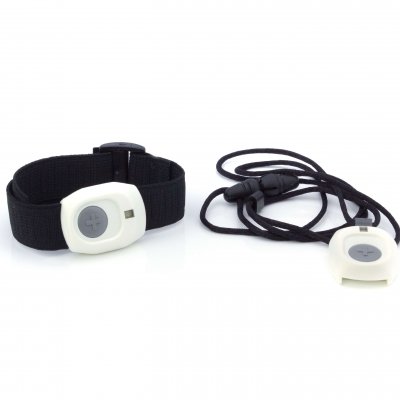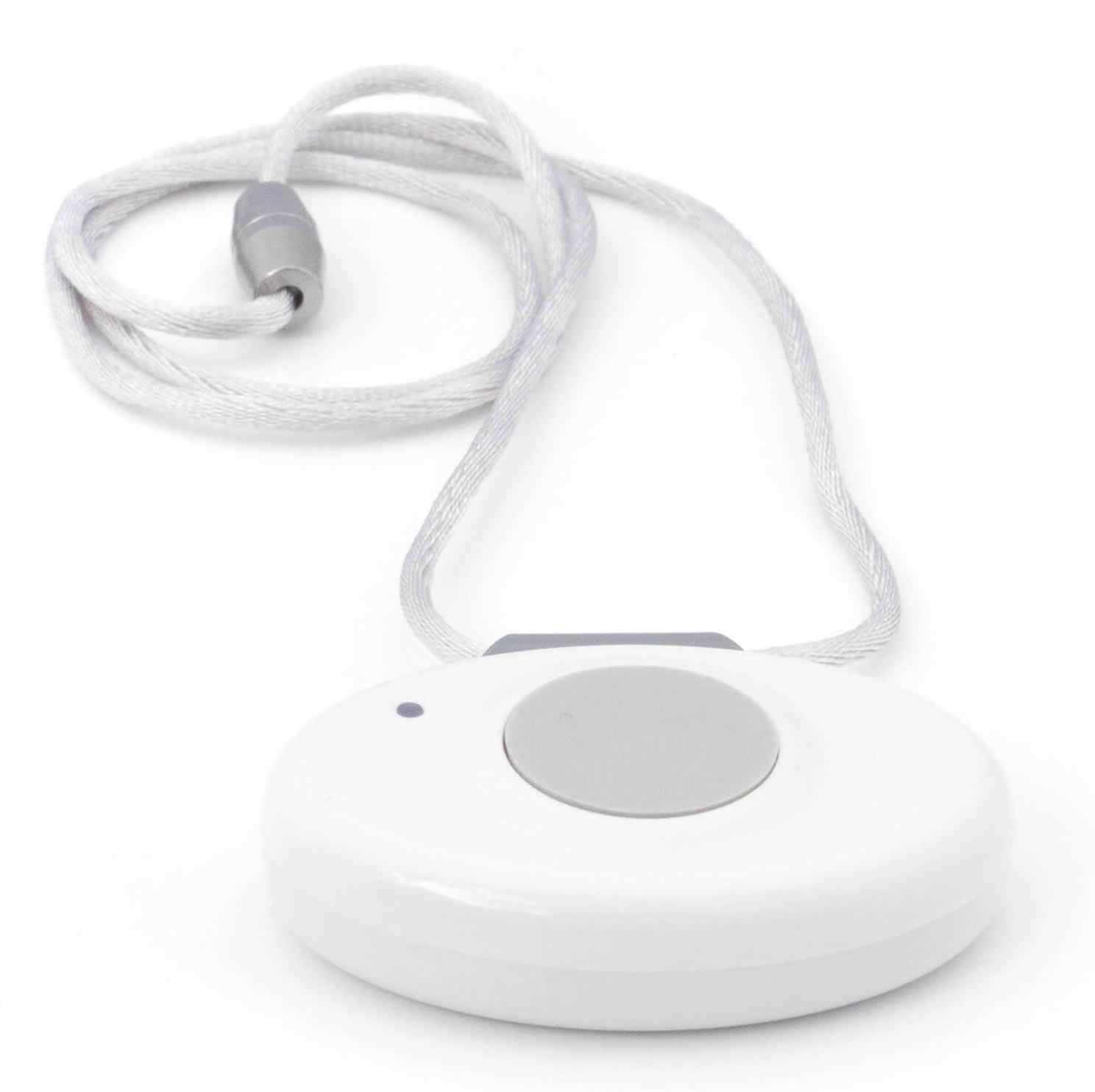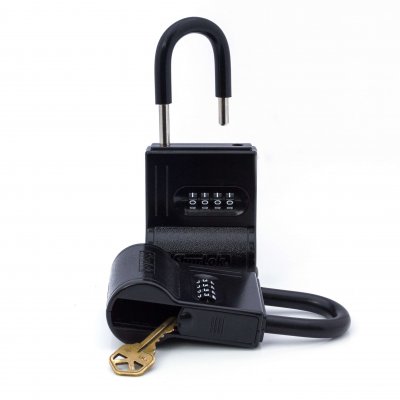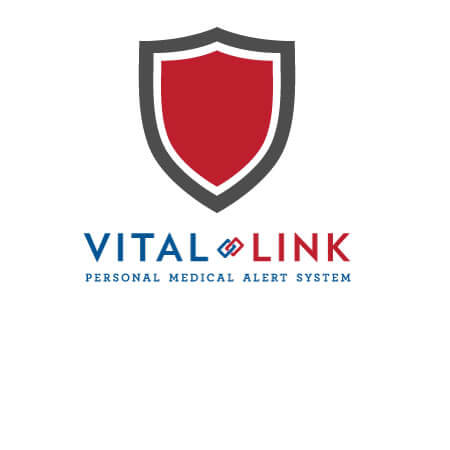How do PERS Systems (Medical Alert System) work in general?
How it works is quite simple, involving only three components: a small radio transmitter (a light-weight, battery-powered “help” button that can be carried on a belt or in a pocket, or worn by the user on a chain around the neck or on a wrist band); a console connecting to the user’s telephone; and an emergency response center that monitors these types of calls. When emergency help is needed, the PERS user can press the transmitter’s “help” button, sending a radio signal to the console (connected to the user’s telephone). This causes the console to automatically dial emergency response center, which is staffed 24 hours per day … everyday. When an medical alarm monitoring center is contacted, the caller is identified, allowing the center to determine the nature of the emergency, review the caller’s medical history, and notify the appropriate medical professionals and/or family/caregiver. If the center can not contact the caller or determine whether an actual emergency exists, they will notify emergency providers to go to the subscribers home, monitoring the situation until the problem is resolved. Most “help” buttons are waterproof, and can be worn in the shower or bath.
What exactly is the “emergency response center,” and where is it located in proximity to my loved one?
There are two types of emergency response centers: provider-based centers which are usually located in the loved one’s local area and operate out of hospitals or social service agencies, and then there’s manufacturer-based centers which usually operate from one national center. Most emergency medical alarm response centers are available 24 hours a day, 7 days a week, including holidays.
Who gets notified in the event of an emergency?
At the time your loved one is first setup with a medical alert device, a client information form will be completed. The profile will contain important information of anyone on the contact list. If no one on the contact list can be reached, emergency services in your loved one’s area will be dispatched. Information for the contact list includes:
- Name
- Relationship
- Keyholder: Yes No
- Home
- Work
- Cell
- Alt #
The client information form also includes your loved one’s medical conditions, drug allergies, , doctors information, and any special instructions.
If my loved one is in trouble, and is not in the same room as the Medical Alert Console, how will they be heard?
Most consoles are quite sensitive, and in an average-sized home, the emergency response center is usually able to communicate with your loved one regardless of what room they’re in. However, there are times when it may not be possible to communicate with a loved one because of the extent of an emergency, therefore, medical emergency professionals like paramedics will be immediately dispatched to your loved one’s home.
Will Medical Alarm Systems work outside?
If your loved one lives in a house, most PERS have a range of 200 to 400 feet outside. Remember that the emergency response center will not be able to speak with your loved one since they are outside, but they will know that your loved one is in trouble and will dispatch paramedics to their house. If your loved one lives in an apartment or condo, the outdoor range changes because apartment construction can block the signal from outside. For example, in a large apartment building, the system will work only inside the home, yet in other apartments, condo’s, and town homes it can work like it does in a single family home. This is why it’s so important to test the range of the medical alert system, in order to know the coverage area of your loved one’s system.
How will emergency personnel get into my loved one’s home?
If emergency personnel need to be called to your loved one’s home, the emergency response center will also contact any friends, neighbors, or family members from your loved one’s contact list that have a key to their home, and who live close enough to meet a rescue team at your loved one’s door.
What happens in the event of a power outage?
Most PERS have a battery back-up that will operate the unit for several hours after a power outage. When the power is restored, the battery automatically recharges, and is then ready for any additional power outages.
Can I set-up the PERS for my loved one, or does it have to be professionally installed?
Many PERS are designed to install quite easily, much like a standard answering machine, however, every company is different, so find out up-front, because it may save your loved one money.
Does my loved one need a special phone jack in order to have a PERS?
For most systems, it’s not necessary to have any special type of jack or wiring. Usually a regular, modular phone jack is all that’s needed in order to plug the alarm into, and it will not affect the phone or any other item plugged into the jack.
What if my loved one still has a rotary phone system? Will the PERS still work?
Almost every PERS is able to work with either a rotary/pulse or tone phone line. Just be sure that your loved one notifies the company before everything is connected, so that they will know what kind of phone system they are going to be working with.
Can my loved one take their Medical Alert with them if they move?
PERS companies usually ask for a written notice within 24 hours of a move, in order to update your loved one’s file with the new address and telephone number.
What happens if my loved one accidentally sets-off the alarm?
If this should occur, your loved one needs to tell the emergency response center operator that the alarm has been set-off accidentally. The operator will then disconnect the alarm and no further action would be taken.
What if my loved one lives in a remote, rural area? Is there coverage available?
If your loved one lives in a rural area, it is most likely best to go with a PERS that works from a manufacturer-based center, operating from one, national center company, enabling your loved one to have service anywhere. All that is required is that your loved one have telephone service available in their location.
What do Medical Alarms cost?
These device can be purchased, rented, or leased. The purchase prices normally range from $200 to more than $1500. There may also be a small installation fee, and definitely a monthly monitoring charge that can range anywhere from $10 to $50. Devices can also be rented for from $15 to $50 per month, which usually includes the monitoring service. Lease agreements can be long-term or can include an option to buy. Some contracts have a cancellation charge. However, you should beware of companies that don’t set a fixed price for their equipment, because they may set a price based on a percentage of the value of a loved one’s house or yearly income.
What type of contract or agreement must be signed for service?
Every PERS company is different, but there are those who don’t require a long-term agreement, and only have an initial six month term, after which your loved one can cancel service anytime, without penalty or cancellation fees, and with just a 30 day notification.
Are Medic Alerts covered by Medicare, Medicaid, or insurance companies?
Usually not, but if your loved one has a prescription for a medical alarm, payment arrangements might be made between your loved one and the company providing their health insurance. Some times a health insurance company will reimburse your loved one after they initially pay the total cost up-front.
Is it possible for me to order a PERS for my loved one, but have the bill sent to me?
PERS companies usually have no problem with this, requiring billing instructions and information pertaining to you instead of your loved one.
How often is my loved one billed?
There are as many different ways to pay for a PERS as there are companies, so it is important to find out, up-front, what kind of payments are expected for the monitoring services. Will it be monthly billing? Will the initial cost of the PERS unit also include a month or two of service? If you go with a service that allows month-to-month payments, you will usually encounter very little problem or penalty should you need to cancel the service. Some also allow you to pay either annually (12 months at-a-time), semi-annually (six months at-a-time), or quarterly (every three months).




